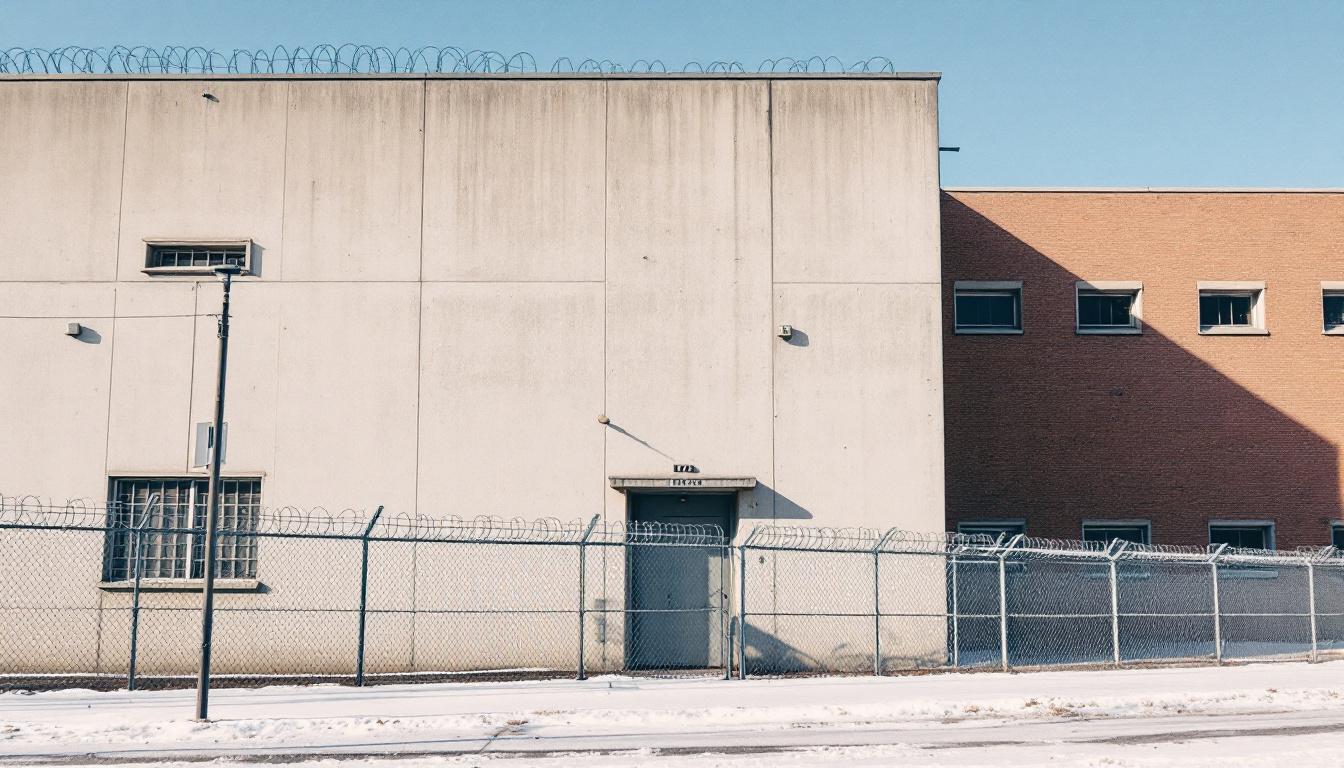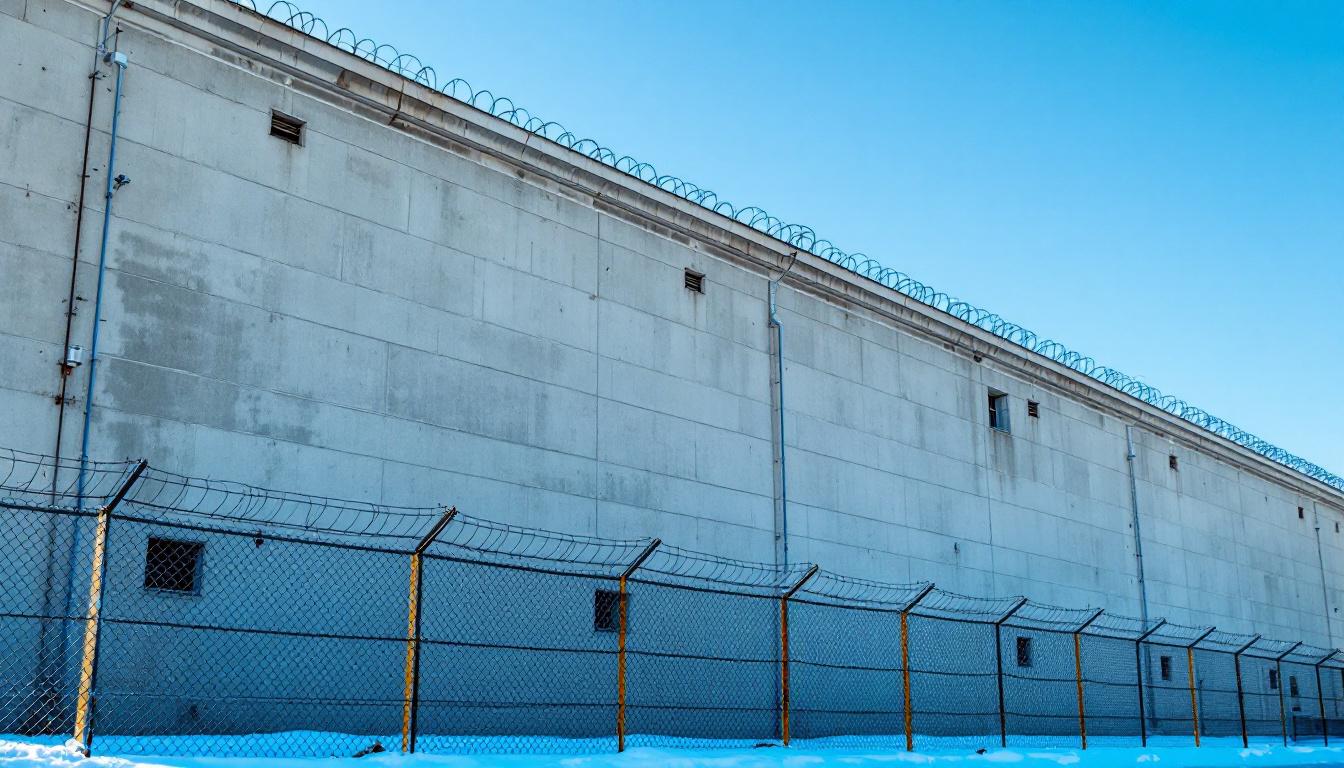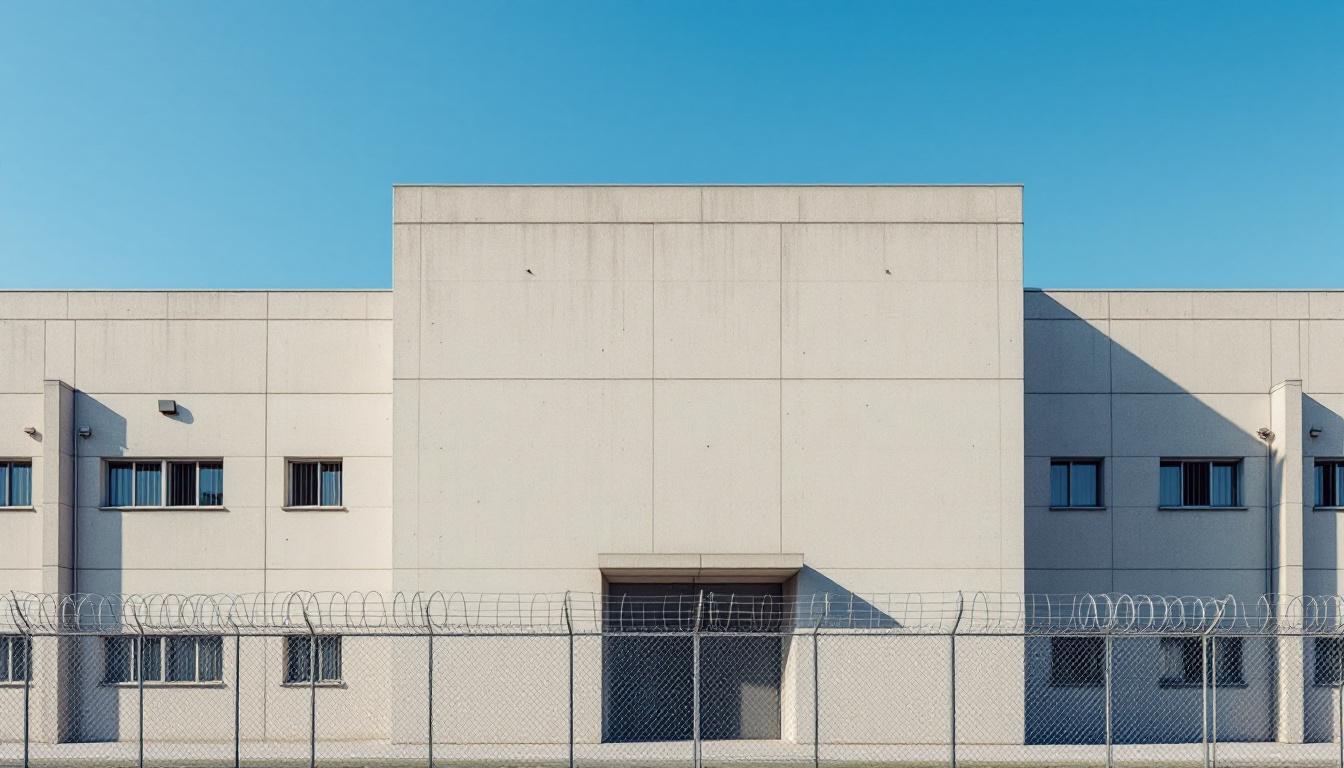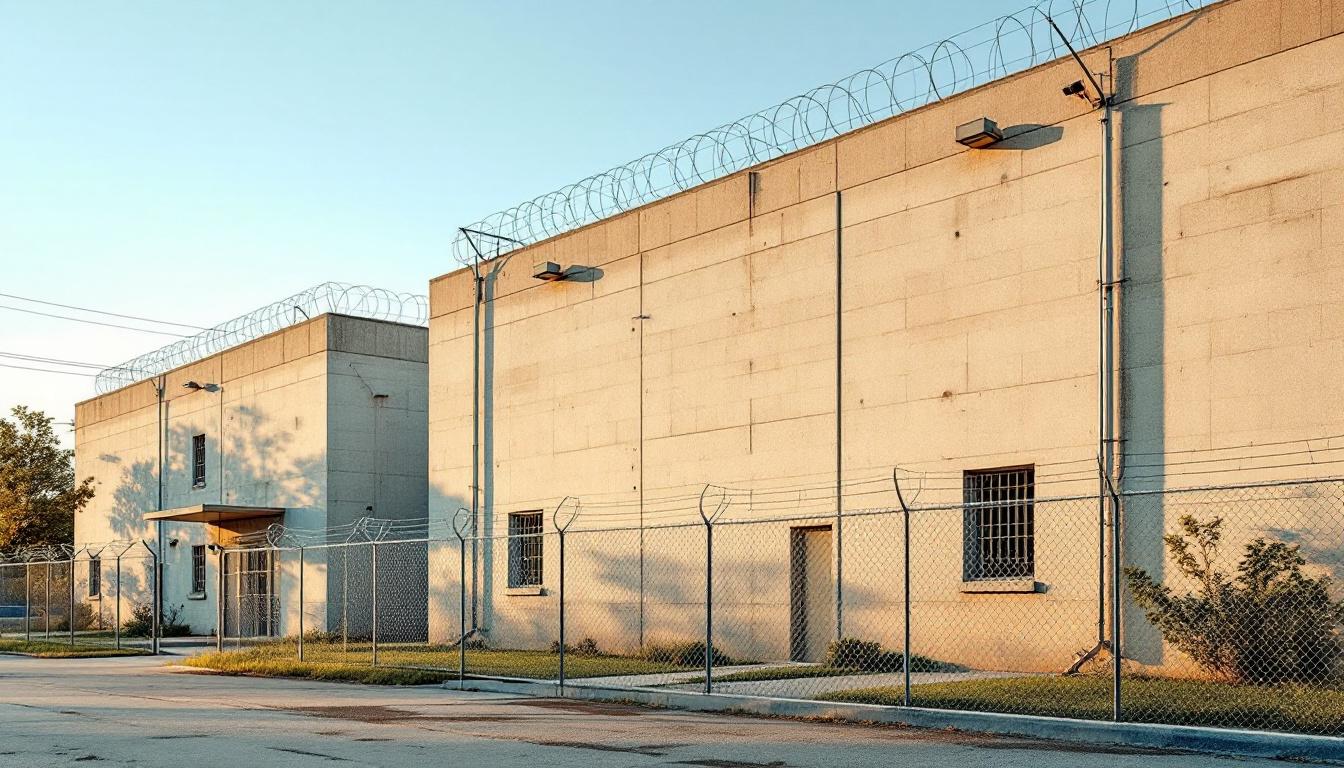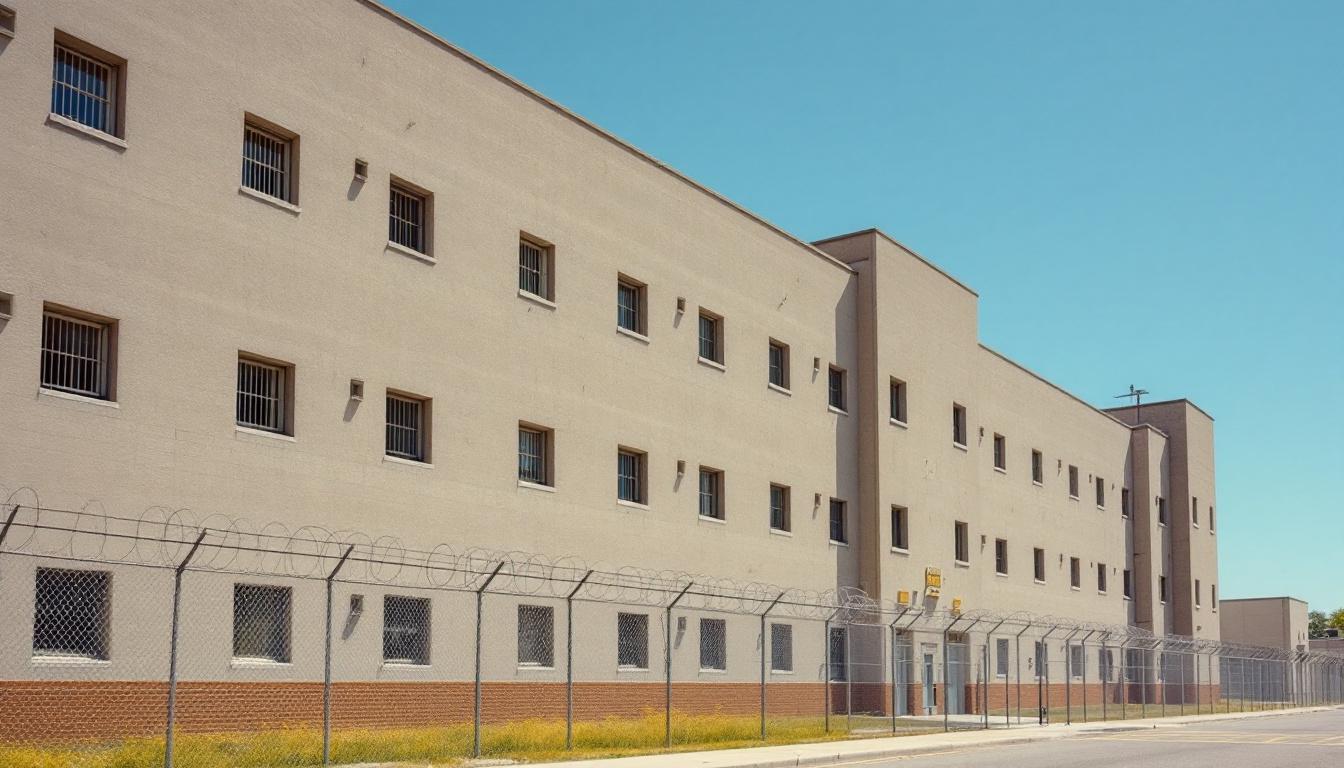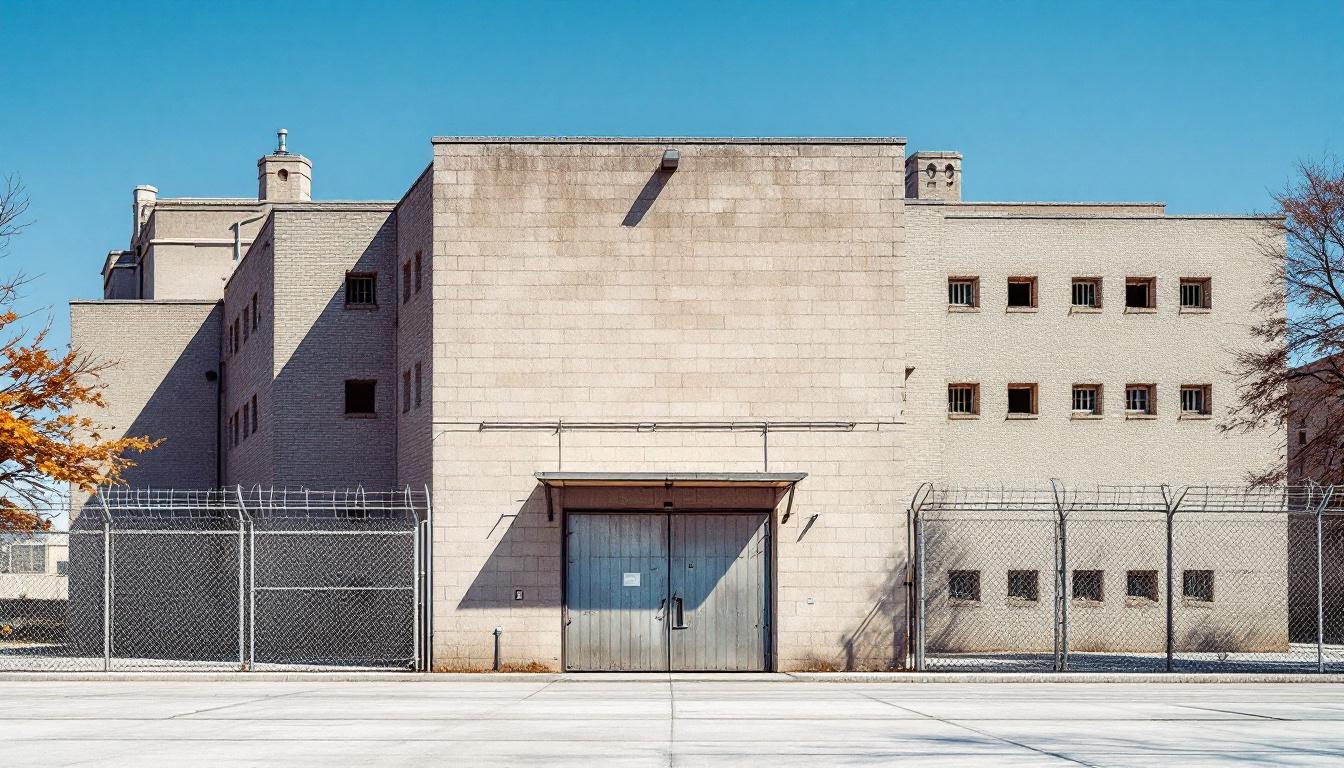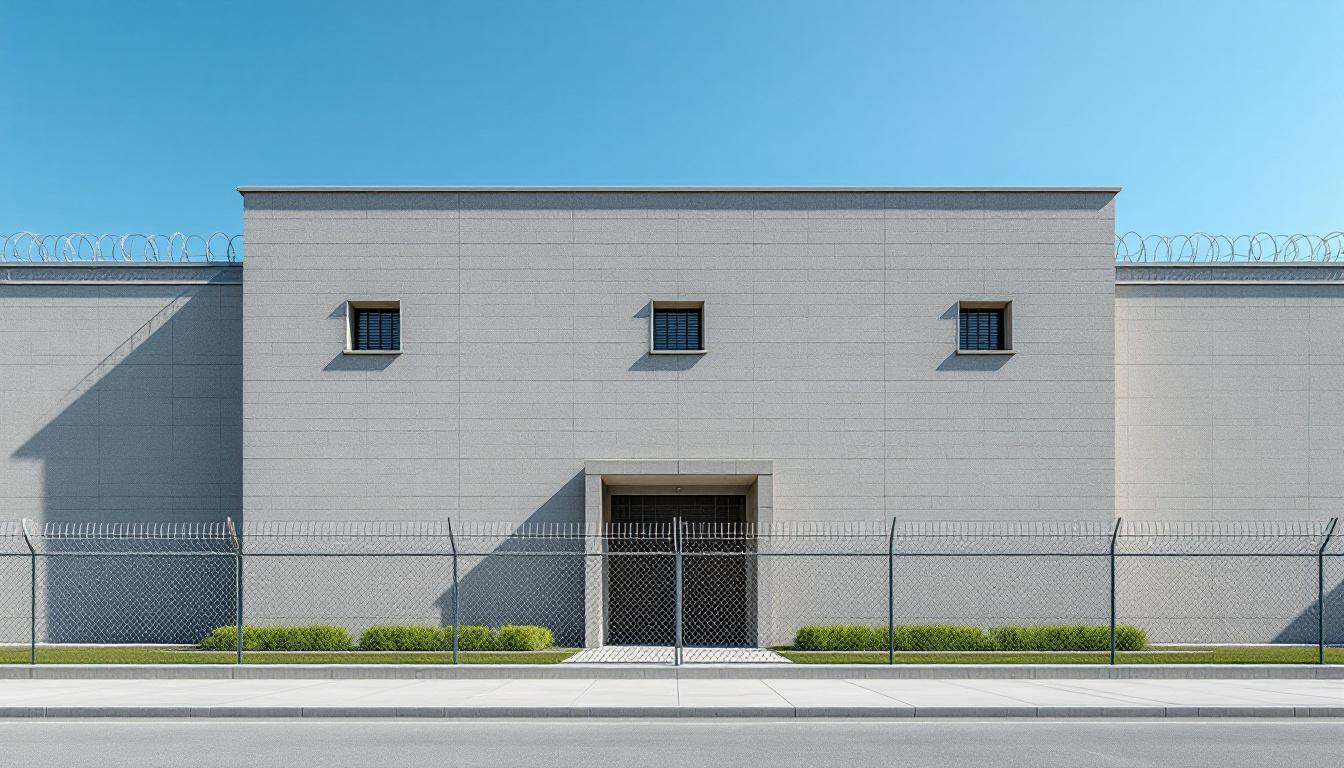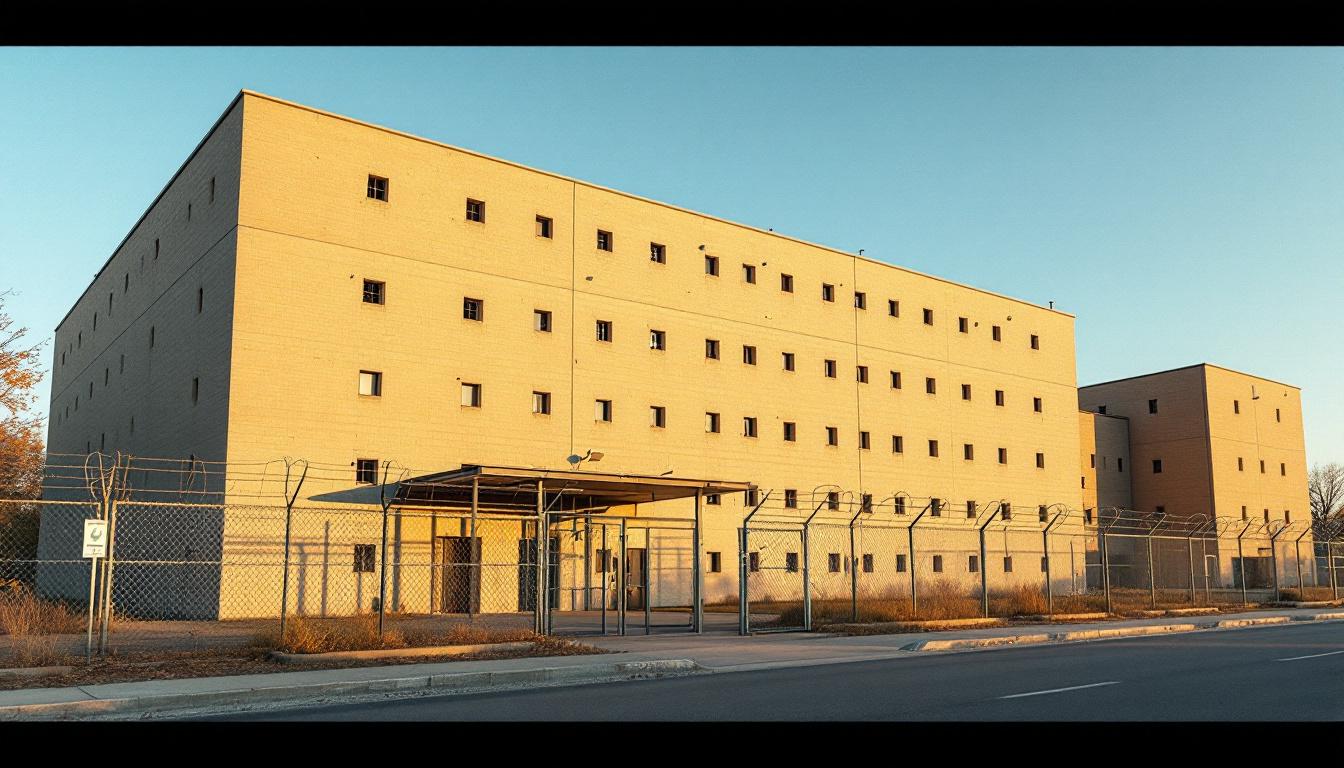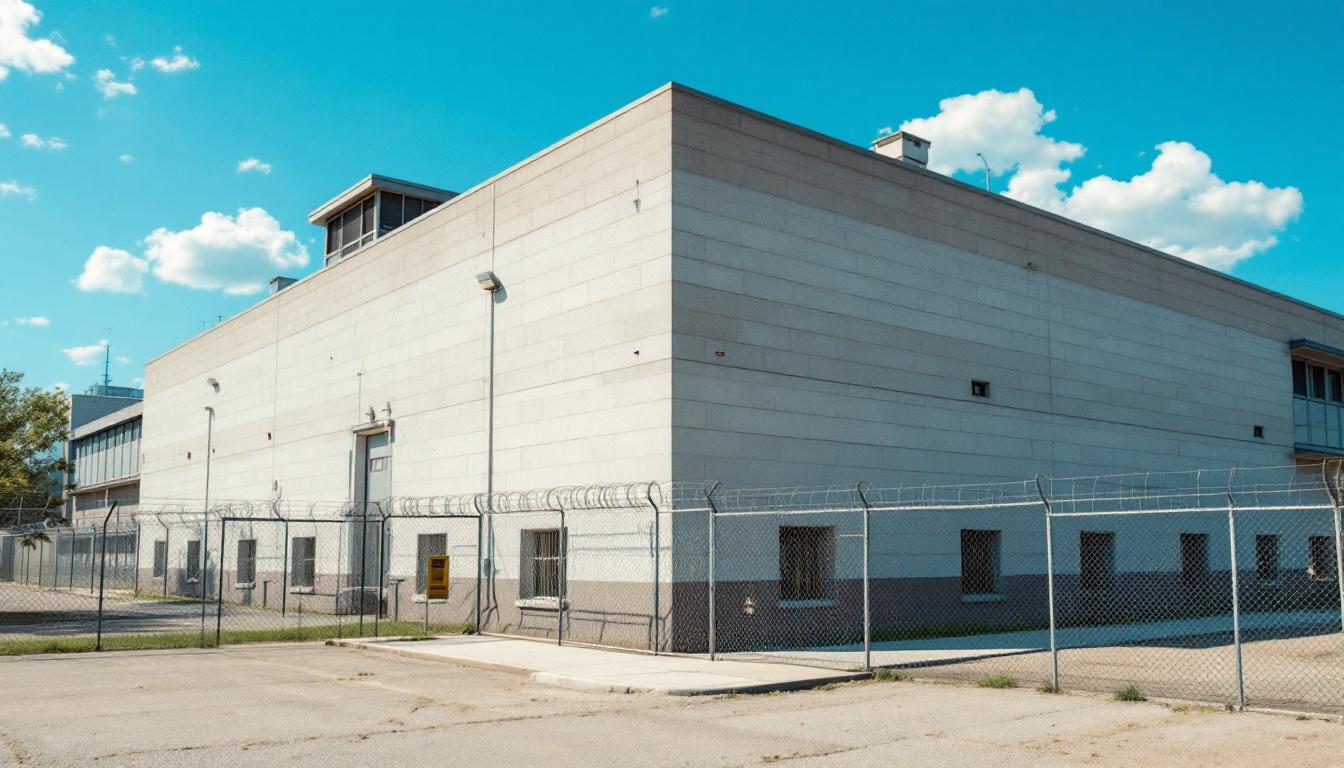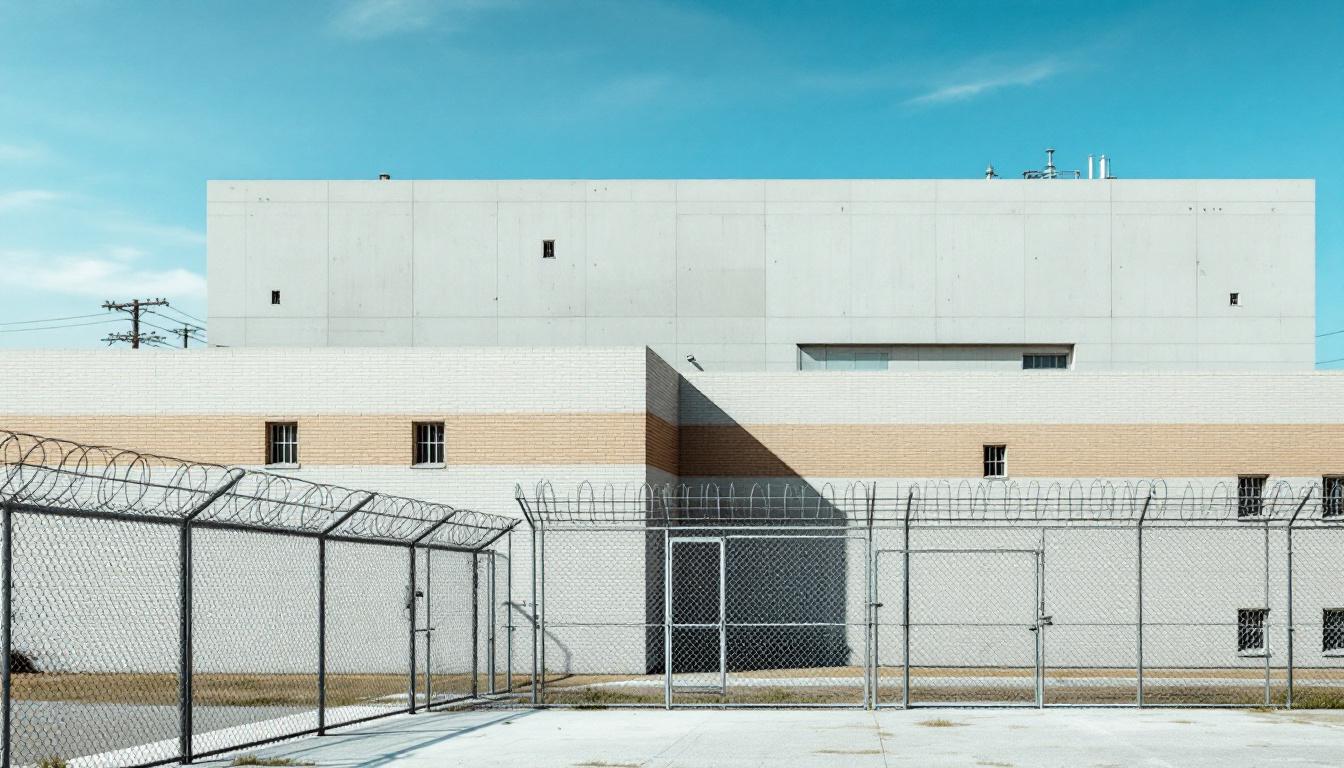
Quick Navigation
How to contact an inmate at Douglas County Department of Corrections
This comprehensive guide will walk you through how to connect with an inmate at Douglas County Department of Corrections. Follow the steps below to find an inmate and send letters and photos:
- Search for the inmate using our search tool below
- Create your account or log in to Penmate
- Write your message (up to 6,000 characters)
- Send instantly - inmates receive printed copies daily
Find an Inmate
Search for an inmate to start communicating today
Tip: You can search by first name, last name, or inmate ID number
To contact a person at Douglas County Department of Corrections start by searching for the person on the official facility website. Perform a search by following these steps:
- Step 1: Enter their first name and last name into the search form and click "Search"
- Step 2: Locate their inmate record
- Step 3: Write down their Inmate ID and any housing information provided
Important! Be sure to enter the person's full name. Nicknames should not be used.
How to Send Messages to Inmates

You can use your phone or computer to send emails, letters, and photos to an inmate. Messages are sent electronically to inmate tablets or kiosks at the facility. If you would like to send a message, start by searching for an inmate at Douglas County Department of Corrections.
Sending Photos and Postcards

A great way to send love and support to a loved one at Douglas County Department of Corrections is to send photos and postcards. It only takes a few minutes to send photos from your phone and it makes a huge difference. You can also mail postcards with words of support and inspiration, or design your own postcard for special moments like birthdays and holidays.
Important! Be sure not to send any explicit photos or they may not be approved by the facility. You can also use a photo printing app like Penmate to make sure your photos are printed at the correct size (4x6 or 3x5) and are mailed according to the rules and regulations of Douglas County Department of Corrections.
Frequently asked questions about Douglas County Department of Corrections
-
How long does it take to deliver a message?
If you're sending an email message your letter is usually delivered within 24-48 hours. For messages sent via mail you should expect delivery within 3-7 days. All messages will need be approved by Douglas County Department of Corrections.
-
How much does it cost to send a message to Douglas County Department of Corrections?
You can send a message free using your phone or mail a message via USPS for the price of a $0.60 stamp and envelope. You can also purchase credits or e-stamps from services starting at $1.99.
-
What services can I use to contact an inmate at Douglas County Department of Corrections?
Penmate
You can use Penmate to send letters and photos to an inmate from your phone. It's an easy way to stay in touch during your loved one's incarceration. Use the inmate locator to find an inmate's location and contact information, then you can send messages within a few minutes.
Securus messaging
Securus may be another option for communicating with an inmate at Douglas County Department of Corrections. You can create a friends and family account and purchase credits to send messages. All messages will be reviewed and must be approved by the facility.
JPay
Some county jails and state prisons may support sending messages with JPay. You must register an account with the system, find your loved one, and purchase stamps to send messages. For some locations you can also attach photos.
Smart Jail Mail
You may also check if Smart Jail Mail is available at Douglas County Department of Corrections. Smart Jail Mail is operated by Smart Communications and has contracted with some state and county jails. After purchasing credits, your messages and photos are sent to the facility, printed out, and then handed out to your loved one.
-
What is the mailing address of Douglas County Department of Corrections?
Mailing address:
Douglas County Department of Corrections
710 S 17th St
Omaha, NE 68102
Phone: (402) 444-7400Business hours:
- Monday: 7:30 AM – 9:30 PM
- Tuesday: 7:30 AM – 9:30 PM
- Wednesday: 7:30 AM – 9:30 PM
- Thursday: 7:30 AM – 9:30 PM
- Friday: 7:30 AM – 9:30 PM
- Saturday: 3:00 – 6:45 PM
- Sunday: 3:00 – 6:45 PM
-
What are the visiting hours at Douglas County Department of Corrections?
Visiting hours at Douglas County Department of Corrections vary by housing unit and security level. Generally, visits are scheduled on weekends and holidays, with some facilities offering weekday visits. Contact the facility directly at (402) 444-7400 or check their website for the current visiting schedule. Visits typically last 30-60 minutes and must be scheduled in advance.
-
What items are prohibited when sending mail to Douglas County Department of Corrections?
Prohibited items typically include: cash, personal checks, stamps, stickers, glitter, glue, tape, staples, paperclips, polaroid photos, musical or blank greeting cards, hardcover books, magazines with staples, and any items containing metal or electronics. Only send letters on plain white paper with blue or black ink. Photos must be printed on regular photo paper (no Polaroids). Always check with Douglas County Department of Corrections for their specific mail policies.
-
How do I send money to an inmate at Douglas County Department of Corrections?
You can send money to an inmate at Douglas County Department of Corrections through several methods: 1) Online using JPay, Access Corrections, or the facility's approved vendor, 2) Money orders mailed directly to the facility with the inmate's name and ID number, 3) Kiosks located in the facility lobby, or 4) Over the phone using a credit or debit card. Fees vary by method, typically ranging from $2.95 to $11.95 per transaction.
-
Can I schedule a video visit with an inmate at Douglas County Department of Corrections?
Many facilities now offer video visitation as an alternative to in-person visits. At Douglas County Department of Corrections, video visits may be available through services like Penmate, Securus Video Connect, GTL, or ICSolutions. Video visits typically cost $10-20 for 20-30 minutes and must be scheduled in advance. You'll need a computer or smartphone with a camera and reliable internet connection. Contact the facility for their specific video visitation policies and approved vendors.
-
What identification do I need to visit an inmate at Douglas County Department of Corrections?
All visitors must present valid government-issued photo identification such as a driver's license, state ID, passport, or military ID. Minors must be accompanied by a parent or legal guardian who can provide the minor's birth certificate. Some facilities require visitors to be on the inmate's approved visitation list, which may require a background check. Contact Douglas County Department of Corrections for specific ID requirements and visitor approval procedures.
-
How can I find out an inmate's release date?
To find an inmate's release date at Douglas County Department of Corrections, you can: 1) Use the online inmate search tool if available, 2) Call the facility's records department, 3) Contact the inmate's case manager or counselor, or 4) Have the inmate provide this information during a call or visit. For privacy reasons, some facilities only release this information to immediate family members.
Facility Overview
Contact Information
Douglas County Department of Corrections710 S 17th St
Omaha, NE 68102
Phone: (402) 444-7400
Official Website
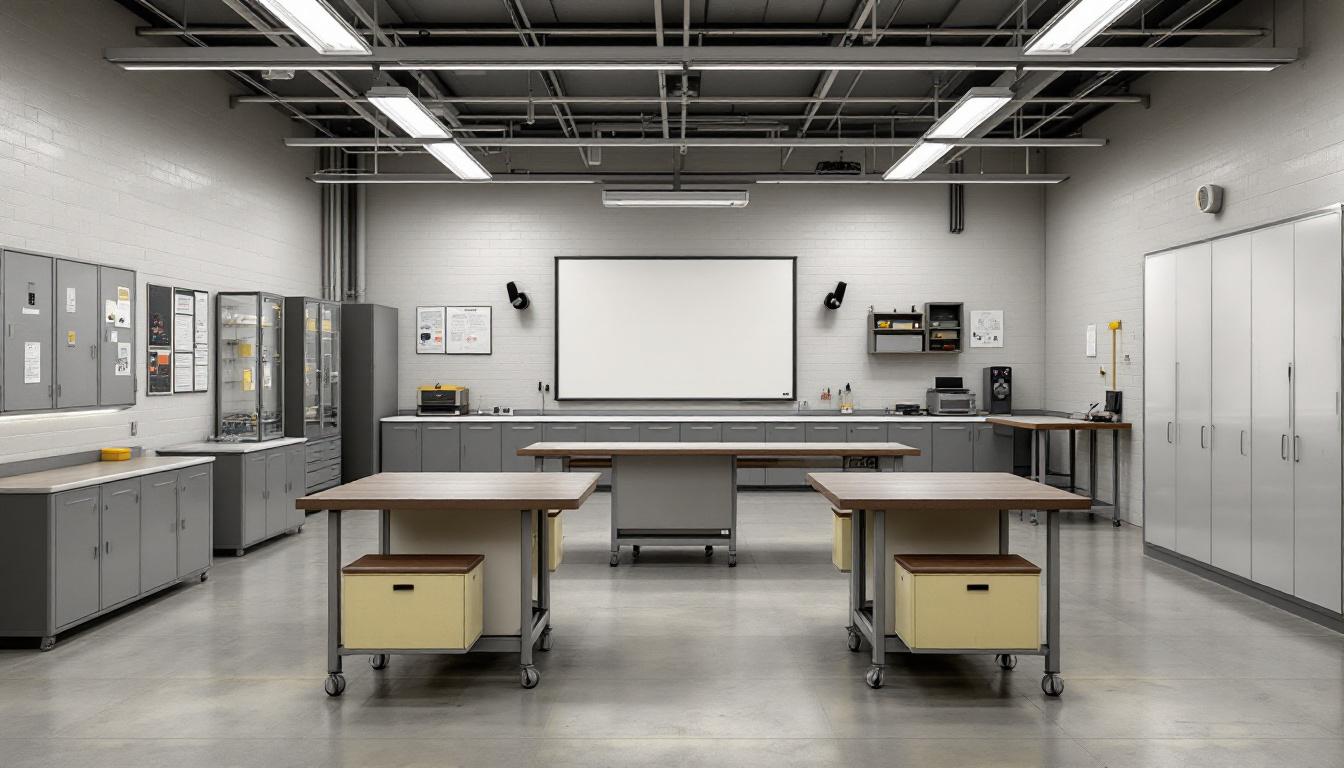
About Douglas County Department of Corrections
Serving Nebraska's correctional system with a commitment to structured rehabilitation and community reintegration, Douglas County Corrections operates as a vital component of the state's approach to justice and public safety. Located in North Platte, this NE correctional facility functions within the broader framework of Nebraska's commitment to reducing recidivism through evidence-based programming and comprehensive support services. The facility's strategic position in the western region of the state enables it to serve multiple counties while maintaining strong connections to local community resources and support networks.
Those incarcerated services at Douglas County Corrections typically encompass a range of programming designed to address the underlying factors that contribute to criminal behavior. The correctional facility generally offers educational opportunities, vocational training programs, and substance abuse treatment services that prepare individuals for successful community reentry. Mental health support, life skills development, and pre-release planning may also form integral components of the facility's rehabilitation approach, reflecting Nebraska's emphasis on addressing the whole person rather than simply managing incarceration.
The facility's role extends beyond housing individuals to actively participating in Nebraska's broader correctional mission of public safety through effective rehabilitation. Staff members often work collaboratively with community organizations, employers, and social service agencies to create pathways for successful reintegration. This comprehensive approach to corrections, common throughout the Midwest region, recognizes that lasting public safety outcomes depend on providing individuals with the tools, skills, and support systems necessary to become productive community members upon release.
Programs & Services
Recognizing that meaningful change often begins with structured opportunities, those incarcerated at Douglas County Corrections encounter a comprehensive framework designed to foster personal development and practical skill acquisition. The facility's philosophy centers on providing accessible pathways that enable individuals to build upon their existing capabilities while developing new competencies essential for successful community reintegration. Through carefully structured offerings, participants typically engage in activities that emphasize accountability, responsibility, and constructive use of time within a secure environment.
Educational advancement serves as a cornerstone of the facility's developmental approach, with programming that may furnish basic literacy instruction, GED preparation, and continuing education opportunities tailored to diverse learning needs. Moreover, vocational training initiatives often include hands-on instruction in trades and technical skills that align with regional employment demands, enabling those incarcerated to develop marketable competencies. These educational and vocational offerings typically operate within structured schedules that reinforce discipline while providing meaningful engagement throughout the day.
Complementing these foundational programs, the facility often includes individual counseling services that address personal challenges and support behavioral change through therapeutic intervention. Work programs frequently provide opportunities for those incarcerated to contribute to facility operations through laundry services and facility maintenance responsibilities, fostering a sense of purpose while developing work ethic and practical skills. Additionally, wellness programs may furnish resources focused on physical health, mental well-being, and stress management, creating a holistic approach to personal development that recognizes the interconnected nature of successful rehabilitation within the correctional environment.
Daily Life & Visitation
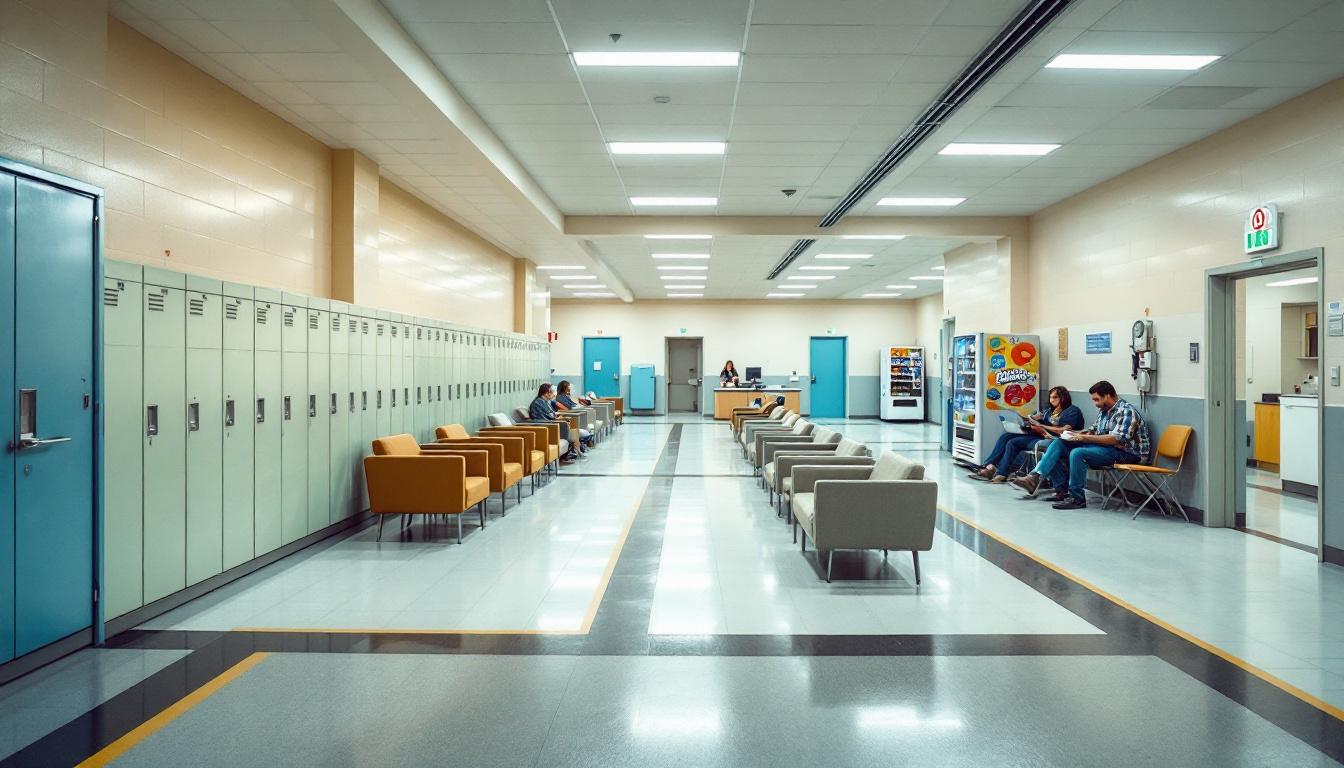
Family connections and social bonds form the cornerstone of the daily experience for those incarcerated at Douglas County Corrections, where maintaining relationships with loved ones remains a central focus throughout their time at the facility. At present, residents actively participate in structured routines that begin with early morning counts and meal service, followed by work assignments, programming sessions, and recreational periods that furnish meaningful opportunities for personal interaction and community building. The facility typically operates on a schedule that balances security requirements with opportunities for social engagement, allowing those incarcerated to develop supportive relationships with fellow residents while participating in various group activities and shared responsibilities.
Moreover, living accommodations generally consist of dormitory-style housing units and individual cells, depending on classification levels and available space, where residents may share common areas that encourage appropriate social interaction throughout the day. Meals are typically served in communal dining areas where those incarcerated can engage in conversation and maintain social connections, while recreation periods often include access to outdoor yards, gymnasiums, and dayrooms where residents can participate in games, exercise, and group discussions. The facility usually provides television viewing areas and library access, creating spaces where individuals can gather for educational programming or simply spend time together in a more relaxed environment.
Whereas daily routines provide structure, the facility's visitation policies and communication systems actively support the maintenance of crucial family relationships through scheduled visiting hours, telephone access, and correspondence privileges. Those incarcerated typically have opportunities to participate in work assignments within the facility, such as kitchen duties, maintenance tasks, or administrative support roles, which not only provide structure but also foster teamwork and responsibility among residents. Programming schedules generally include educational classes, substance abuse counseling, and life skills workshops that encourage group participation and peer support, while commissary privileges allow individuals to purchase personal items and share small comforts with others, further strengthening the sense of community within the facility's structured environment.
Ready to Connect?
Start communicating with your loved one today
Search for an Inmate
